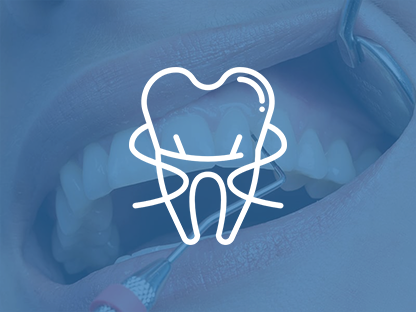Periodontology (Gum Diseases)
Periodontics is a branch of dentistry that deals with the diagnosis, treatment and prevention of gum diseases and other gum-related problems.
Periodontics is a branch of dentistry that deals with the diagnosis, treatment, and prevention of gum disease and other gum-related problems. Dentists who specialize in this field work to protect the health of teeth and gums by diagnosing and treating gum disease early.
Gum disease is characterized by inflammation and infection in the gums. Gum disease usually occurs due to plaque and tartar accumulation under the gum line, on and around the roots of the teeth. This accumulation can cause bacteria to grow, which can cause gum infection.
What Does It Do?
Periodontics uses many different techniques and testing methods to identify the signs and symptoms of gum disease, determine the causes of these diseases, and determine appropriate treatment plans. Dentists offer a number of different options for treating gum disease. These options may include medications, gum cleaning, tartar cleaning, and surgical interventions.
Treatment and prevention of gum disease is extremely important for dentists. Gum disease can lead to oral health problems and tooth loss. In addition, gum disease can increase the risk of systemic infections that can cause general health problems.
As a result, periodontics is very important for the early diagnosis and treatment of gum disease. Dentists who specialize in this field use many different techniques and treatment methods to treat and prevent gum disease. Therefore, it is extremely important to visit the dentist regularly and practice good oral hygiene to maintain gum health.
How Long Does the Treatment Process Take?
The duration of the treatment may vary depending on the level of the disease and the treatment method. In the first stage, the dentist will perform an examination to determine the cause of the disease. During this examination, the gums and teeth will be visually examined.
A plan will then be prepared for the treatment of gum disease. The treatment method may vary depending on the severity of the disease, the patient's age, general health status, and other factors. Therefore, the duration of the treatment may also vary.
Periodontics treatment usually has several stages. The first stage is tartar removal and gum pocket cleaning. This procedure is highly effective in the early stages of gum disease and is usually completed in a few sessions.
In more advanced cases, surgery may be necessary. This surgical procedure is performed to remove or reshape the diseased gum tissue. This procedure usually takes a few hours and can take several weeks to fully heal.
After periodontal therapy, the dentist will schedule a follow-up program to check the patient's oral health. This follow-up program is important to prevent recurrence of the disease.
As a result, the duration of periodontal therapy may vary depending on the level of disease and the treatment method. It is recommended that you talk to your dentist for more information about the treatment duration and procedures.

